NWS: Extreme heat, fire danger for New Mexicans this week; monsoon relief likely on the way6/18/2025 High winds will crank up the heat across New Mexico on Tuesday, prompting major heat risk stretching from the Middle Rio Grande Valley in Albuquerque, through the Lower Rio Grande in Las Cruces. Risk from extreme temperatures will include parts of Socorro and the state’s southeastern region, as Roswell is expected to reach 110 degrees. The winds will make that heat index, or “feels like temperature,” even hotter, said Michael Anand, a meteorologist at the National Weather Service office in Albuquerque.
“We have high confidence that we’ll see temperatures around 110 degrees in Roswell…hence why we upgraded that heat watch to a warning,” Anand said. Last week, the heat levels prompted warnings from NM health officials and raised concerns for nonprofits and providers serving people experiencing homelessness. The reality is that heat doesn’t have to reach triple-digits to pose dangers to people’s health, said Chelsea Eastman Langer, who leads NMDOH’s Environmental Health Epidemiology Bureau, in an interview last week with Source NM. She pointed to New Mexico Department of Health data showing that emergency room visits jump when the temperatures outside rise above 90 degrees, but that may not match up with expectations. “If it’s 90 degrees, people say ‘it’s not that hot, it gets worse,’” she said. “It is a challenge. And I would say it’s when we’re still kind of figuring out how to message and get the word out.” Langer said that health officials are working with employees at the National Oceanic and Atmospheric Administration on a proposal to lower the thresholds for issuing weather-related advisories below triple-digits. “What we see is that we start to get people coming in with heat-related illness at temperatures much lower than when they would issue [a warning],” she said. “We start to see people coming in to [emergency rooms] at 80 degrees and then there’s a pretty sharp increase at 90 degrees.” Dr. Emily Bartlett, an emergency physician in Gallup, said numerous groups of people face risk from heat: children; the elderly; people without home cooling equipment or shelter; outdoor employees; and anyone with health risks. “It’s not just the maximum heat, it’s the duration,” Bartlett told Source NM. “If it doesn’t cool off enough at night between days of high heat, it raises the risk of illness.” Bartlett said in hot weather, heat stroke, a potentially deadly condition which is usually exhibited by a fever of 104 degrees and neurological symptoms, represent the highest concern. “If someone is expressing altered mental status, acting confused, lethargic, not answering questions correctly — that should be presumed to be an emergency,” she said. “Just like with stroke or heart attack patients, we want to start early treatment, as well as getting that patient to a hospital.” Less serious conditions can include heat exhaustion and heat rash, which can be mitigated through cooling and hydration, Bartlett said. The winds also whip up fire danger concerns across the entire Western and Central portions of the state, as officials battle two southern New Mexico fires north of Silver City. Chances for the seasonal monsoon rains are increasing and may arrive as soon as the weekend, Anand said, offering chances of thunderstorms and rain for most of the state. “It’ll be hot and dry until the monsoon plume kicks in on Sunday and Monday of next week,” he said.
0 Comments
The New Mexico Interstate Stream Commission will hear fiscal year 2026 priorities and work plans when it meets Wednesday in Albuquerque.
The commission will meet from 8:30 a.m. to 1:30 p.m. at the Office of the State Engineer/Interstate Stream Commission, 5550 San Antonio Dr. NE. The public can also join remotely. Information on how to remotely attend the meeting can be found here. The first hour of the meeting will be a closed session. The public can tune in for the open meeting starting at 9:30 a.m. During the open session, the staff will present work plans for fiscal year 2026, including details about how money will be spent in the Middle Rio Grande. Middle Rio Grande The Middle Rio Grande work plan includes a total budget of up to a little more than $8 million. Some of the elements of the Middle Rio Grande work plan include analyzing how evaporation impacts how much water is available and refining a water supply forecasting tool. The largest budget item for the Middle Rio Grande work plan is $3.4 million to support the strategic water reserve, which is a publicly-owned pool of water rights that helps New Mexico meet its compact obligations and comply with Endangered Species Act requirements. Earlier this year, the legislature passed a bill that added a third purpose to the reserve. That new purpose is to support aquifer recharge projects or to reduce groundwater depletion. The strategic water reserve is not to be confused with the strategic water supply, which is a recent effort to use treated brackish water and produced water — a byproduct of oil and gas extraction — to support industrial operations. The state may consider acquiring pre-1907 water rights to support the strategic water reserve, which could mean partnering with non-governmental organizations or other government agencies. Another $2 million could be spent on channel maintenance and restoration in the Middle Rio Grande. The work in the Middle Rio Grande basin — which includes the Albuquerque area — could also include endangered species work. The agency is looking at a budget of nearly $7 million to help endangered species that rely on the Rio Grande. The bulk of that money — $6 million — will be spent on habitat improvements and river restoration in the Middle Rio Grande. Some of the species that this funding will help support include the Rio Grande silvery minnow and the southwest willow flycatcher. Other work plans and projects Further south on the Rio Grande, the work plan for the Lower Rio Grande has a budget of up to $31.28 million. The biggest single budget item for the Lower Rio Grande is $10 million for stormwater capture and aquifer recharge. Another $7.5 million is budgeted for a short-term groundwater conservation program and $6 million is budgeted to identify, characterize, and quantify the brackish groundwater aquifers that could be used in desalination efforts. Albuquerque area residents may also be interested in the presentations on the Acequia and Community Ditch Infrastructure Fund Work Plan, which has a budget of about $5.58 million, and the Acequia Support Work Plan, which has a budget of up to $1.75 million. The Interstate Stream Commission will also hear the work plan for water planning initiatives, which is budgeted at around $7 million for fiscal year 2026. The commission previously discussed the Colorado River, Canadian River and Pecos River basins work plans during a May meeting. Other agenda items for Wednesday include agreements with the U.S. Geological Survey for river gaging statewide and the Mesilla Basin Groundwater and Surface Water Monitoring Program. The ISC is also scheduled to hear an informational presentation about aerial surveys in southern New Mexico that are part of an effort to characterize the aquifers in the Lower Rio Grande area as the state looks into possible supply augmentation. Closed session includes discussion of Texas v. New Mexico The meeting will start with a closed session to discuss the Texas v. New Mexico and Colorado case that is pending before the U.S. Supreme Court. In this case, Texas argued that groundwater pumping in New Mexico was impacting the amount of water Texas was receiving through the Rio Grande and thus violating an interstate compact. While it looked as if the case would go to trial this month, the United States government, as well as Texas, New Mexico and Colorado, requested that the trial be put on hold as they work on a possible settlement agreement. In addition to discussing the Texas v. New Mexico case, the closed session will also focus on the litigation on the Colorado River Basin. GOP bill makes 14 million acres of public land in NM ‘eligible’ for sale, according to new analysis6/18/2025 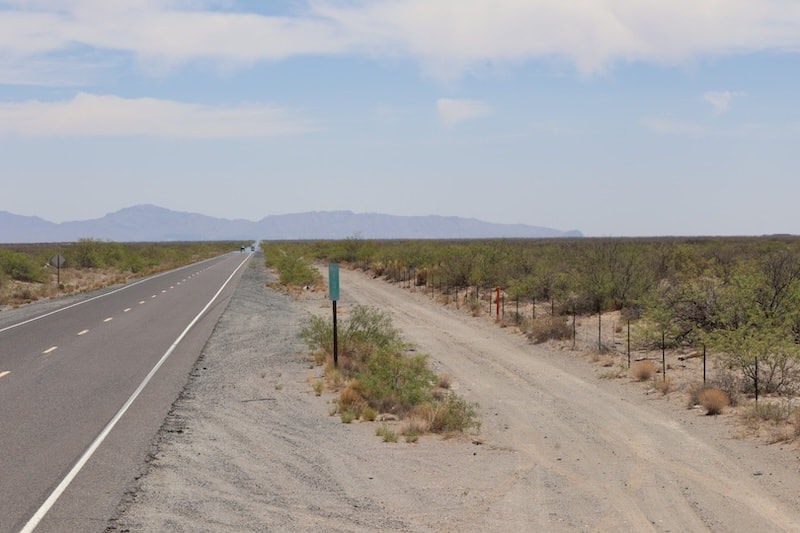 Highway 9, with federal grazing land on either side, in Southern New Mexico pictured in May 2025. The Senate reconciliation bill making progress this week makes more than 250 million acres “eligible” for private sell-offs, including federal grazing land, according to an analysis by the Wilderness Society. The bill mandates up to 3.2 million acres of public land be disposed of. (Photo by Patrick Lohmann / Source NM) The federal budget reconciliation bill making progress in the United States Senate this week makes more than 21,000 square miles of public land in New Mexico “eligible” to be sold to private buyers, according to the Wilderness Society. The group, which opposes efforts to sell off public lands, geographically analyzed lands across the West that could be subject to a land sale, based on criteria laid out in the bill. Across the West, several hundred million acres of land would meet the criteria, according to the group, though only a tiny fraction of that would be sold, per the bill text. The bill mandates the “disposal” of between .5% and .75% of all United States Forest Service and Bureau of Land Management land across the West, which means up to 3.2 million acres or 5,000 square miles. According to the Wilderness Society’s analysis, about 6.5 million acres of U.S. Forest Service land in New Mexico would be eligible, in addition to about 7.8 million acres of BLM land. According to a map the society created, huge swathes of BLM land east of Las Cruces also would be eligible, along with areas of the Gila National Forest and Santa Fe National Forest. This map visualizes the 250+ million acres of public lands eligible for sale in the Senate budget reconciliation package. Take action: Tell your senators to vote no on the reconciliation bill. Learn more about the bill and find the data here. Map and analysis by The Wilderness Society using source data from BLM, USFS, USGS, NPS, and SENR reconciliation bill text as of June 16th 2025.
The mandate does not apply to national parks, monuments or other “federally protected land” like historic sites, wildlife refuges or fish hatcheries. It also excludes land that is “subject to valid existing rights.” But it’s no longer clear what that last provision means, said Wilderness Society spokesperson Max Greenberg in an interview Tuesday with Source New Mexico. Until this weekend, “valid existing rights” applied to federal lands with grazing leases, but lawmakers struck the definition, according to Politico and leaked drafts the organization obtained. After lawmakers removed that definition, the Wilderness Society revised its estimate to 250 million acres of federal land eligible for sale, up from 120 million acres, Greenberg said. The figure reflects the sheer amount of federal land now leased for grazing across the West, he said, and also the secrecy in the legislative process. “This played out with kind of secret updates over the weekend and this very non-transparent, strange process where we have to work out what is actually implicated in the bill,” Greenberg told Source. “All of this argues for just [a] better process and better transparency… It’s been misleading the way the bill was initially framed by Republicans as this kind of very surgical effort to dispose of a few marginal parcels here and there.” U.S. Sen. Mike Lee (R-Utah), chair of the Senate Natural Resources Committee, has said the mandated selloff would serve as a way to discard remote and difficult-to-manage public lands and turn them into housing developments. He made the pitch last week in a video he released, featuring Interior Secretary Doug Burgum and Housing and Urban Development Secretary Scott Turner. “Washington has proven time and again that it can’t manage this land. This bill puts it in better hands,” Lee said in the video. A previous version of the bill in the House contained about half a million acres of specific parcels of federal land to lose federal protections, but House lawmakers removed that language after pushback, including from U.S. Rep. Gabe Vasquez (D-NM). Vasquez called it a “huge victory” at the time. Emergency departments have reported increased cases of infants and young children coming in contact with substances like fentanyl, methamphetamine or even residue on household surfaces or drug paraphernalia. Some of these exposures have resulted in death. For curious toddlers, anything left within reach can be a danger.
Simple steps can help protect little ones:
If you suspect a child has been exposed, use naloxone — you can give naloxone to people of all ages — and call 911 immediately. Protecting children starts with supporting parents and caregivers. Compassionate care, harm reduction services and family-centered treatment options are available to help parents heal while keeping children safe. At Presbyterian Española Hospital, we provide confidential services including individual substance use disorder counseling, referral for medication management and connections to community resources for adults and adolescents (age 13 and up). If you or someone you know is struggling, call us on 505-367-0340. Am I just a late bloomer? By Zach Hively Oh, did I ever have grand aspirations. I am sitting outside right now, right where—starting six years ago—I imagined a modest if obscenely bountiful garden flourishing in this dry, inhospitable patch of sand. A lot of love and hard work, and as always some make-or-break luck, built this space into what I see before me today: A dry, inhospitable patch of sand. Which is not to say I have failed entirely as a gardener. Here, let me tally for you all the delicious things I have enjoyed—cumulatively, over these last six years—from lo these many efforts:
And all this—except the potato—came from container gardening. Which is still hard! I think the ground underneath the containers is a bad influence. Granted, I have had to deal with FACTORS. I’ve ranted before about the pack rats who chew anything that grows here down to the stubs. They make me think it was rabbits. Spoiler: it is never rabbits. Rabbits do not build modest yet obscenely bountiful nests in the engine compartment of my pickup truck. Nor do they festoon these nests with intact, uneaten garden stakes. (Alongside spine-in prickly pear pads.) Never mind the pack rats. And never mind that they intimidate me into pretending they don’t exist. I also have to contend with water. I grew up in one of those increasingly rare American cities with potable water straight from the tap. It was either entirely safe, or we didn’t know any better because of the silencing power of the local military-industrial complex. Either way! We all also watered our plants with it, and the plants generally survived. So I, privileged and oblivious, watered my first-year garden straight from the groundwater well. Not only was the water abundant, it was unmetered. It was also not discolored. But everything—and I mean everything, except the pack rats—died. Turns out, plants do not thrive on leaded groundwater. So I installed a couple rain barrels. You, astute reader, may see the fault in this plan faster than I did: Rain barrels require—and this is backed by empirical science—rain. Which we get! Sometimes! But do you know when plants least need watered? Right after it rains. Thus, I hoarded the water in those barrels, because watering my modest yet increasingly obscenity-generating garden used up their contents in about two goes. I drew out the supplies. Asked my lingering plants to go on austerity. (I had moved on from most delusions of edibility at this point. We were just holding out for some hardy flowers.) Ultimately I upgraded from the original two sixty-gallon barrels to an additional pair of 250-gallon beasts. One really good downpour fills them right up. Yet I, scarred and hardened now, as burned as my cat mint plants in July, still limped my plants along. I’m so averse to running out of water that I feel better when I leave the tanks full. All the while, nature taunts me: the wild datura that sprouted all on its own by the front door—and which I never once tended to—provides a full 96% of our annual flowerage, with blooms as big as my face. This year, I gave up. I didn’t plant a single seed. No trips to the nursery center. No starts, no plugs, no offshoots. I water the trees (which have not grown but also have not died) mainly when I remember to, which is seldom, because I have handed their fate over to Fate. Which means, of course, that the garden has picked up the slack. Every surviving sage plant has shot out new leaves after overwintering without a darn bit of assistance from moi. I have what I distinctly believe to be a fourth carrot growing. The containers are getting bushy with marigold greens and two rosemaries that just won’t quit. And then there’s these bad boys: Bad girls? Bad plants. Good plants? Whatever. These flowers did it all by themselves. I can’t even tell you when I last put hollyhock seeds in this trough or anywhere else. It was not in a recent year.
I think there are lessons to be learned here. Possibly about relinquishing control. Definitely about the transformative beauty of giving up. So remember, kids: If at first you don’t succeed, quit planting seeds. Don’t try so hard, or at all. And if you ever come over to see my flowers, best bring your own food. SANTA FE – No cost back-to-school vaccinations are available from dozens of medical providers statewide.
The annual Got Shots special immunization clinics will be held between June 14 – Aug 30 for all children 0-18 years-old. The New Mexico Department of Health (NMDOH), the New Mexico Immunization Coalition, the New Mexico Primary Care Association, along with managed care partners Blue Cross and Blue Shield of New Mexico, Molina Healthcare, Presbyterian Healthcare Services and United Healthcare are making sure New Mexico’s children get their scheduled immunizations on schedule. "Vaccines are one of the greatest tools we have to protect children’s health. Safe and effective immunizations have dramatically reduced – and in some cases, eliminated – dangerous childhood diseases that once claimed thousands of young lives in the United States every year,” said Andrea Romero, NMDOH Immunization Program Manager. Participating providers – such as NMDOH public health offices - will offer immunizations to any child, regardless of whether they are a patient or have insurance, as part of Got Shots. Some providers hold clinics on weekends or evening hours to accommodate parents’ busy schedules. Parents should call ahead to the clinic to see if an appointment is needed. Parents need to bring their child’s shot record, and if they have insurance, their Medicaid or private health insurance card. Immunizations are provided at no cost to parents regardless of insurance. This year, 68 public health offices, community health centers, and private practices are participating in the Got Shots campaign. Click here to see the current School and Childcare Immunization Requirements. A map and list of additional statewide locations participating in Got Shots is available on the New Mexico Immunization Coalition page. For immediate release
ESPANOLA, NM — The inspiring short documentary MOVING ARTS | Setting Hearts Ablaze by the award-winning production company Docufilms is gaining international recognition for its powerful portrayal of how art can transform young lives. The film, which features the non-profit Moving Arts Española, has been named a 2025 Cannes World Film Festival Finalist, a New York International Film Award Semi-Finalist, and the Best Documentary Short winner at the Touchstone Independent Film Festival. Additional accolades include: ● Official Selection – Los Angeles Independent Shorts Awards ● Official Selection – East Village New York Film Festival ● Official Selection – IndieX Film Fest ● Best Original Score - TELLY Awards ● Best Documentary - TELLY Awards ● Best Social Impact - TELLY Awards The documentary captures the essence of Moving Arts philosophy that “Art is Medicine”, illustrating how creativity, discipline, and compassionate mentorship guide children from fear and hurt toward safety, trust, and healing. Through a vibrant blend of dance, music, painting, photography, video production, gymnastics, and digital art, the organization provides a nurturing environment for self-expression, resilience, and growth. “We were honored when DocuFilms approached us about featuring Moving Arts in their newest documentary,” said Roger Montoya, Creative Director and Co-Founder of Moving Arts. “This project beautifully captures the creativity, dedication, and impact of our program, and we were thrilled to see our students shine. When they recently shared the trailer with us, we were blown away by their innovative approach to showcasing the magic of Moving Arts.” MOVING ARTS | Setting Hearts Ablaze features deeply moving interviews, stunning cinematography, and a narrative piece created by former Moving Arts students highlighting the growing challenges in Española, where up to 60% of students in the Rio Arriba County school district are being raised by grandparents or extended family. “It was beautiful to hear the voices of our alumni telling our story and talking about the impact Moving Arts has had on their lives,” said Salvador Ruiz, Executive Director and Co-founder. The documentary also showcases a powerful dance performance by San Ildefonso’s Than Povi Martinez, reflecting the limitations of conventional education and the liberation that creative practice provides. At the heart of the film are founders Roger Montoya, a 2019 CNN Hero, and Salvador Ruiz, a 2022 Univisionario, along with a passionate team of educators, alumni, and volunteers. Together, they have created a thriving community where youth are empowered to heal, grow, and lead through experiential learning and artistic exploration. Docufilms, known for its emotionally rich and socially impactful documentaries such as Movement, BIG little, Season Two, and Eating History | A Taste of New Mexico, brought its signature storytelling approach to this heartfelt project. “Moving Arts is a powerful example of what it means to uplift a community through creativity, discipline, and compassion,” said Docufilms director, Michael Campbell. “It was an honor and a privilege to witness the transformative impact of their work and to help share their story with a broader audience.” MOVING ARTS | Setting Hearts Ablaze is more than a film—it’s a celebration of community, creativity, and the unshakable belief that every child deserves a place to heal, grow, and thrive. For more information about Moving Arts or to support youth leadership initiatives, visit movingartsespanola.org Moving Arts was approached by Docufilms following the news coverage that they were in need of a forever home. The search for a forever home continues, but the organization remains committed to staying in the Española Valley and raising the millions of dollars necessary to ensure that their doors are always open to serve the children and youth in the community. For press inquiries, film screenings, or interviews, please contact: Email: [email protected] Phone: 844-623-2787 Website: movingartsespanola.org Learn more about the film and upcoming screenings at movingartsespanola.org/events ### Jun 6, 2025 | NMDOT Press Release
SANTA FE – Out of an abundance of caution and with public safety as its top priority, the New Mexico Department of Transportation (NMDOT) will close the historic Oñate Bridge in Española at 8 a.m. on Saturday, June 7, ahead of the anticipated monsoon season. The bridge will remain closed indefinitely as engineers address ongoing concerns about riverbed erosion around one of the bridge’s piers that could pose a risk during periods of high river flow. “Protecting the traveling public is our highest priority,” said Transportation Secretary Ricky Serna. “Given the potential for increased water levels and further scour during monsoon rains, this closure is a proactive step to ensure everyone’s safety.” The closure, which applies to both vehicle and pedestrian traffic, will remain in place while further evaluations and potential mitigation efforts are explored. Detours will be in effect, routing traffic through two nearby bridges on either side of the Oñate Bridge. NMDOT began monitoring the structure in 2019 following an underwater inspection that identified erosion at a pier. A follow-up inspection in January 2025 found further deterioration, prompting additional hydraulic modeling that confirmed the need for action. In recent months, NMDOT’s Bridge Bureau, Drainage Bureau and District Five collaborated with the Federal Highway Administration (FHWA) to evaluate the bridge’s condition and explore options for continued monitoring. A joint assessment in June with FHWA scour experts resulted in the decision to close the bridge prior to any significant rainfall events. By Felicia Fredd Have you ever had a moment with a garden, or ‘built landscape’—a perfectly normal one—where the normality of it suddenly seemed perfectly bizarre? It happens to me all the time—even on projects I, myself, have designed.
It’s not so much the ridiculous effort required to organize outdoor space—and to keep it that way—as it is the specific choices intended to create a coherent and blissful experience, which can often seem quite strange. Most of us evaluate environmental quality effortlessly, but the specific visual 'languages' that shape overall impressions are less apparent —and are, in fact, the subject of many ecological planning and design studies. Ecologists are urging us to rethink how we alter landscapes. We, the people, don’t like change. Change is strange—probably no stranger, on average, than what we accept as normal at any given moment—but our attachments to the familiar run deep. So, researchers have been trying to better understand the specific cues that inform us that something is ‘right’ or ‘attractive’ in landscape, and why. There are cultural biases involved, of course, but they study that too, all for the purpose of gaining support for protection and care of the environment. In reviewing some of these studies, one thing I feel has changed in my thinking—at least a bit—is with regard to the significance of color in landscape/garden environments. Check out this title: Bibliometric Analyses of Factors Influencing Color Preferences in Urban Environmental Spaces: https://pmc.ncbi.nlm.nih.gov/articles/PMC12101126/. The ‘wow’ factor is also interesting: All About the ‘Wow Factor’? The Relationships Between Aesthetics, Restorative Effect and Perceived Biodiversity in Designed Urban Planting: https://www.sciencedirect.com/science/article/pii/S0169204617300701 I love studying color, but I’ve always felt that it’s ultimately the spatial relationships, forms, textures, and plays of light in a given landscape that are fundamental to a special sense of place. I have a really hard time when a particular plant is rejected because it ‘doesn’t bloom long enough’ to justify its existence, or ‘earn its keep’. I’ve heard such things for years during the design process. The number one thing most people request upfront is low-water-use plants, and the second most important parameter given is overall low maintenance; however, most people will easily walk back those basic goals in order to get more intense color throughout the growing season—throughout all seasons, actually. In addition to having a more ‘garden-worthy’ feel (and what exactly does that mean?), non-natives have been modified over and over to deliver more color and satisfying bloom over longer periods of time. Both of these topics are complex, but right now, I’m feeling like, okay, I just need to step up to that without sacrificing ecological goals. I have been documenting native plants in my local environment, taking lots of pictures, and experimenting with these plants in my emerging garden space. The following are color studies for plants blooming at the same time in Abiquiú this spring. It’s not all-encompassing or necessarily mind-blowing, but it’s just to illustrate that there is color there to be organized. You will see just a few non-natives in the mix, but it’s about 90% native. I’ve also added some pics of additional details such as shadows, bugs, yellow rocks, and rusted metal. I’ve not, until just now, thought of a color study as literally organizing color—which is weird when you think about it too much. I can't see clearly now. By Zach Hively My eyesight has always been superb. I hyper-specifically remember testing at 40/20 or 20/10 or whatever really good vision is, back when I got my first driver’s license. The DMV employee’s reaction of awe made me internalize that I was a mofo-ing superhero. I could read street signs an entire second before anyone else in the car, back when people still read street signs. Now our phone maps tell us where to turn. But excellent vision has other uses! Like reading a grocery list without having to search for the glasses hiding out atop my own head. I can’t leave well enough alone, though. Oh no. I take great delight, at the very occasional party I’m still invited to, in steering conversation around to my impeccable eyesight. It’s my primary remarkable physical trait. Statistically speaking, I am the only person my age who didn’t ruin his eyes by reading in the dark. (Told you so, Mom!) I even make my living, such as it is, on computer screens. I have no reason to expect functioning eyeballs. Especially once they stopped functioning. You see, I got a stye back around the start of the year. Not one of those little yellow ones that you can pop with plausible deniability. No—this was one of those mighty and inaccessible ones that made a friend ask me if I’d been stung by a scorpion. “On my FACE?” “I mean…” She gestured at all of me, as if suggesting I am precisely the sort of self-explanatory man who might lie—accidentally, I’m sure—with scorpions. Whatever the cause, my vision was getting wonky, and I concluded my eye was probably infected. I got a primary care doctor and her power of prescription to agree with me—“Yup that’s infected, alright.” The eyedrops took the grotesque factor down a considerable degree. But the fuzziness remained. Sometimes I couldn’t focus on mountains. Other times on my dogs. Those unethically bright headlights irritated me even more than normal. I worried, increasingly, about not spotting the difference between, there, their, and they’re. Whatever professional credibility I had left was on the line. At least, I presume it was. Lines were increasingly hard to make out. So I did what no man wants to do: I made damn sure I knew the difference between an optometrist and an ophthalmologist. One gives out glasses, which I didn’t want. The other is harder to spell, especially without sharp vision. I called that one. This was two months into my squinting-at-menus adventure. The office set my appointment another two months out. I had ample time to come to grips with my mortality. I even convinced myself that losing my vision—a core component of my self-worth—was beneficial for my brand. If you can’t trust a skinny chef, what about a writer without specs? The day arrived, as days tend to do. A series of professional technicians in scrubs led me through the trials. I had, I figured, about a 1-in-10 chance of guessing the smaller letters right. I could eliminate all the easy-to-differentiate ones. The strategy seemed to go well until I started doubling up guesses. “B or E, P or … F? That probably tells you all you need to know, huh.” The professional smiled a lipless smile and did not tell me if I had passed the trial. For the final tribulations, I sat in a classic ophthalmologist’s chair with all the imposing accoutrements. The Big Boss Scrubs put some drops in my eyes. She told me I would soon be unable to read my phone or anything else, but that I would be safe to drive. This struck me as backwards. I had to prove I could see before they let me drive in the first place. But I let it slide. She soon left me unattended, and I took pictures of a great many things because I am nosy. And when I looked at my photos, I didn’t. By which I mean, I very much actually could not see my phone. The phone on which I receive Very Important Writerly Emails. The phone on which, if I were ever awarded some lucrative contract for once, I would read about it. Worse, the phone on which I had typed out that afternoon’s grocery list. The doctor came in—or so I was told. He intoned with far too much lighthearted joy that my vision, not fifteen minutes earlier, was 20/20—a clear downgrade from whatever it was before!—and that I was merely experiencing a disease (those were his words, “merely experiencing a disease”) that, to retread an old joke, sounds like a random line on a vision chart.
“Say that again, please?” I begged, my hands grasping for his outline. “Blepharitis.” Spelled B unless that’s an E; L, unless that’s an I… No matter how ominous it sounds, this is just med-school speak for “slightly puffy eyelids.” They’re gently nudging my eyeballs. Take some supplements, keep washing your face, you’ll be fine, dude. The Big Boss Scrubs handed me a cheap rolled-up set of sunglasses and ushered me on my way. My vision got fuzzier and fuzzier. I made it to the grocery store, recognizing that this might be the last place I ever saw. If “saw” is the right word—I couldn’t even see to punch in my telephone number at the checkout. For all I knew, my total was eight thousand dollars. For all I knew, my bananas were plantains. I pleaded with a higher power: Please, return my sight to me, and I promise I will stop boasting about my superior vision. I will use it only for good! I will enjoy mountains again—and books, beautiful paper books. I’ll even turn the light on to read at night. I promise. But I’ll never stop complaining about those blasted headlights. |
Submit your ideas for local feature articles
Profiles Gardening Recipes Observations Birding Essays Hiking AuthorsYou! Archives
September 2025
Categories
All
|

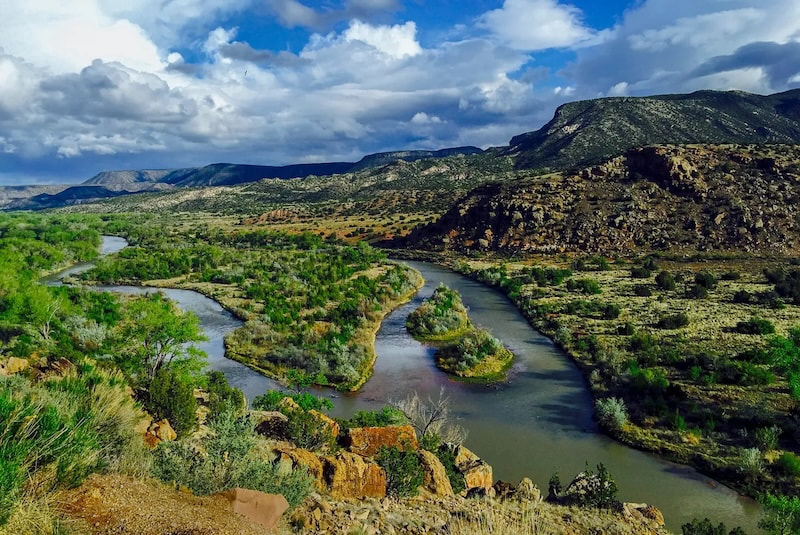
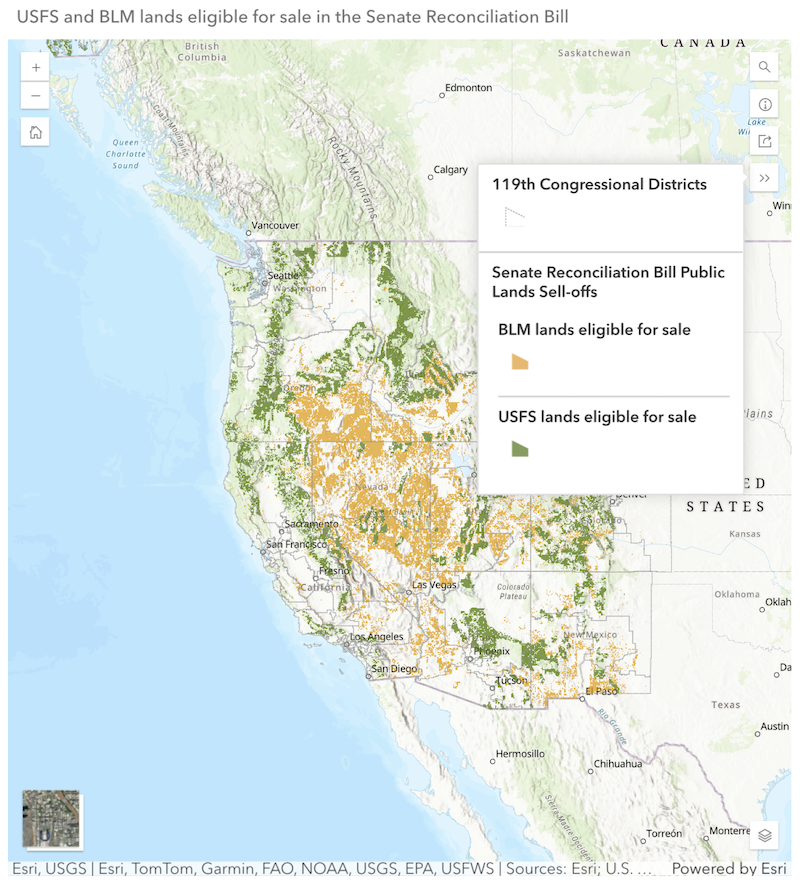

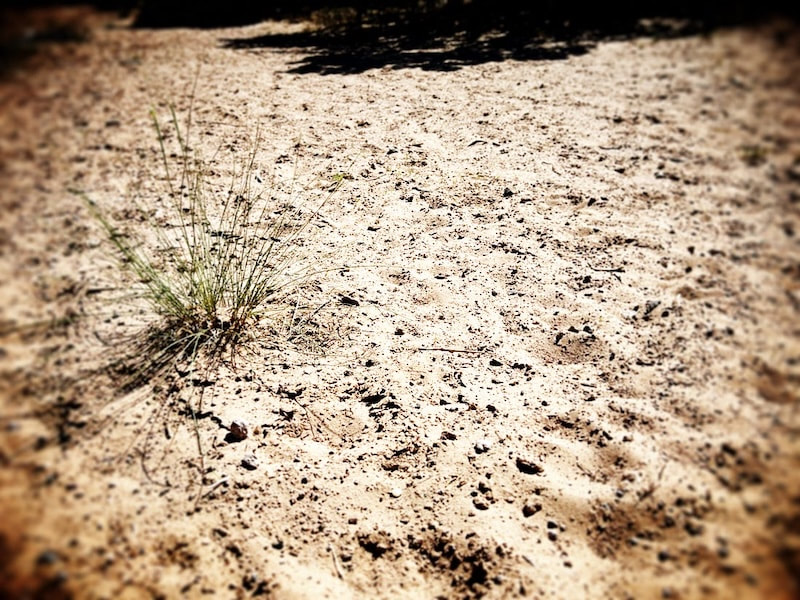
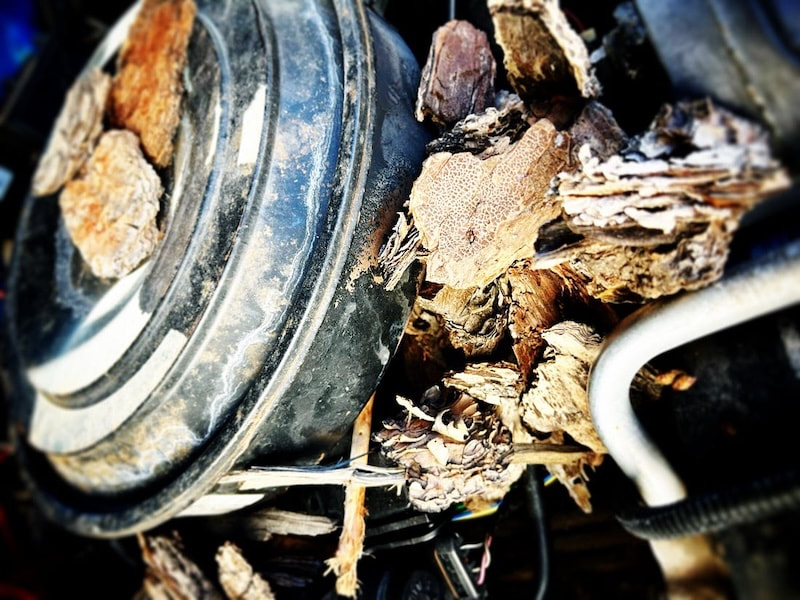
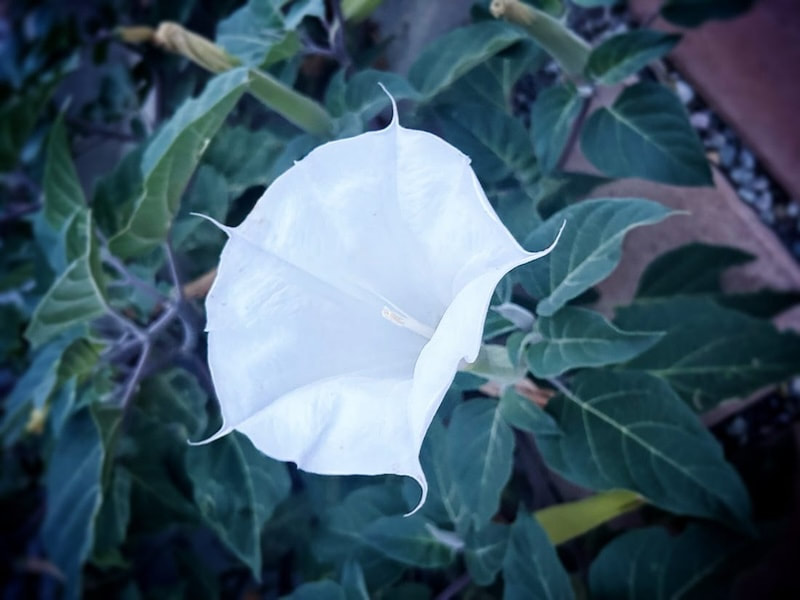
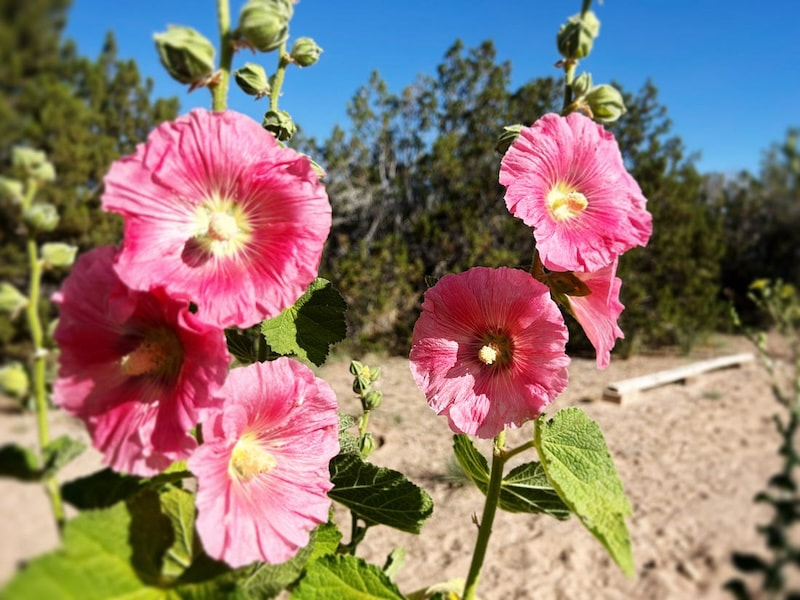



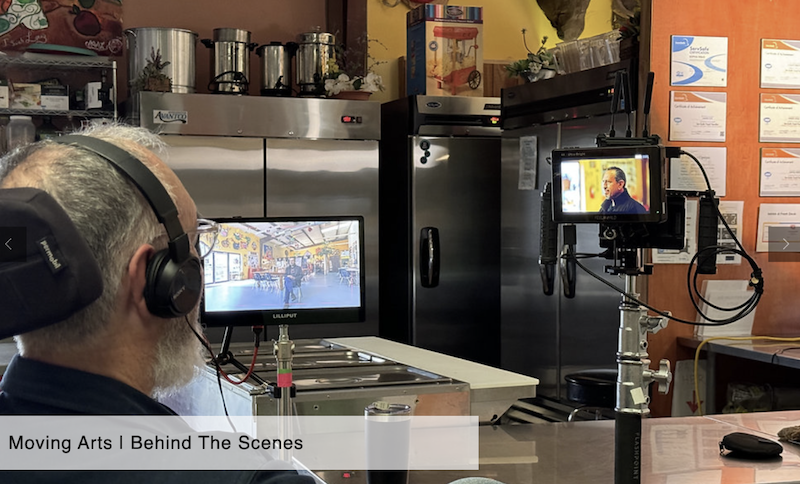

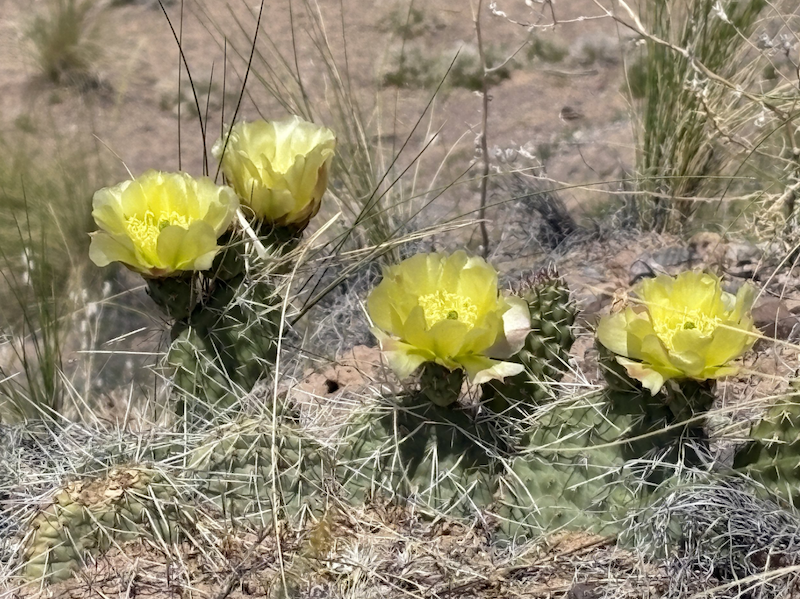

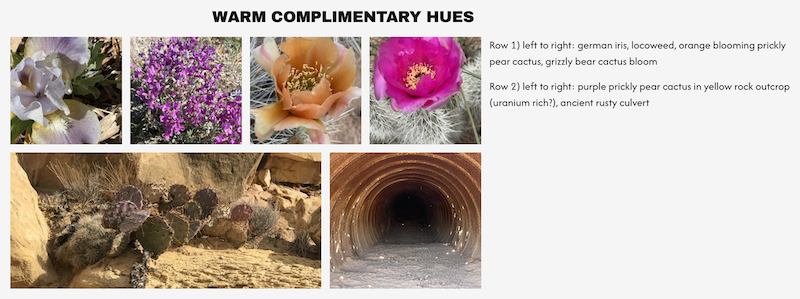

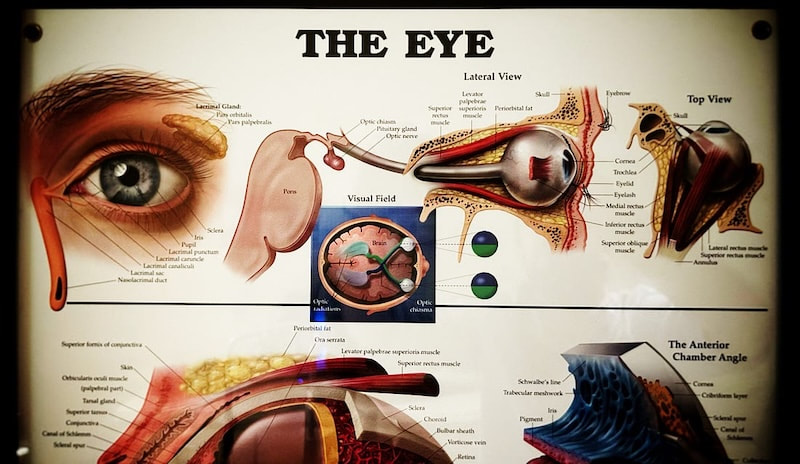

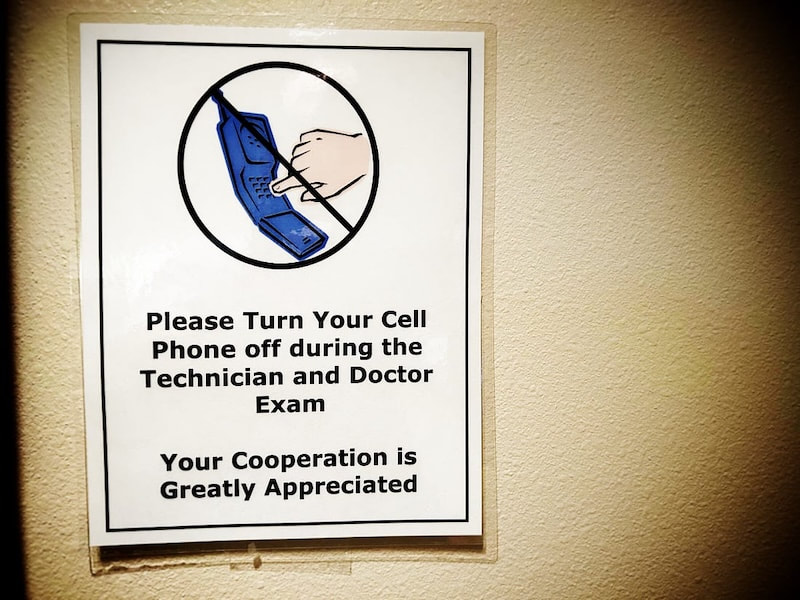
 RSS Feed
RSS Feed